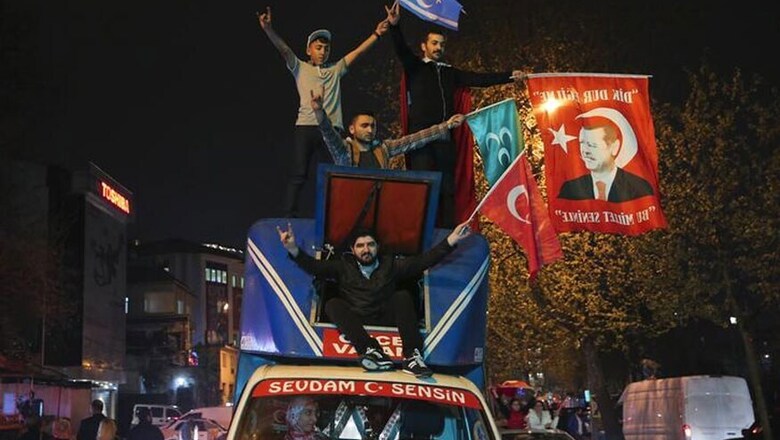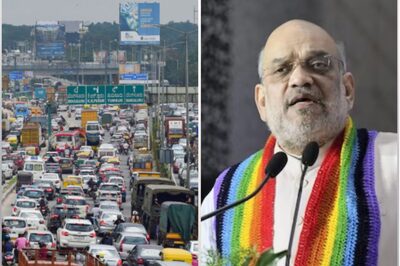
views
Here are five ways the referendum could shape Turkey:- Enhanced or weakened powers? -
The executive presidency system "amasses unprecedented power in the hands of one man," said Alan Makovsky, senior fellow at the Center for American Progress.
But Fadi Hakura, Turkey expert at London-based Chatham House think tank, called the referendum result "at best a Pyrrhic victory" for Erdogan.
Relations between Turkey, a longstanding candidate to join the European Union, and its EU partners plunged to bitter lows during the referendum campaign as the president lashed out at Europe for what he said was behaviour reminiscent of Nazi Germany.
Erdogan has said Turkey's membership bid would be "on the table" after the referendum and in every single campaign speech.
"The tactics of constantly bullying the EU... for domestic political purposes have now reached their limits," said Marc Pierini, visiting scholar at Carnegie Europe.
Erdogan could now move away from EU integration, a process which has moved slowly at best, and forge alternative strategic alliances, including with Russia.- Peace process or military action? -
Erdogan was the first Turkish leader to undertake peace talks with the outlawed Kurdistan Workers' Party (PKK), resulting in an unprecedented ceasefire.
But the PKK truce shattered in 2015 and Erdogan has since waged a controversial campaign to destroy the group.
With only a narrow referendum win the president "may feel compelled to be conciliatory," said Asli Aydintasbas, senior fellow at the European Council on Foreign Relations (ECFR).
"Turkey could return to the peace process."
However the Yeni Safak daily has claimed that the government will open a new front with cross-border operations against PKK camps in northern Iraq, in a new effort to destroy the group.- Reconciliation or polarisation? -
"He wins, but in the end half of the country is in love with him, and the other half loathes him, and herein lies the crisis of modern Turkey," said Soner Cagaptay, author of a forthcoming book, "The New Sultan."
While Erdogan has forged a coalition with nationalists, he has in the past showed considerable pragmatism in his alliances.- Economic rally or downturn? -
Markets had been cautiously expecting a 'Yes' and hoping this will bring much-needed stability and a rally in Turkish assets.
In the medium term the prospects are much more uncertain, with some economists fearing that any democratic deficits in Turkey and increased polarisation in society, coupled with the government's loss of its enthusiasm for reform, will hit long-term growth rates.




















Comments
0 comment